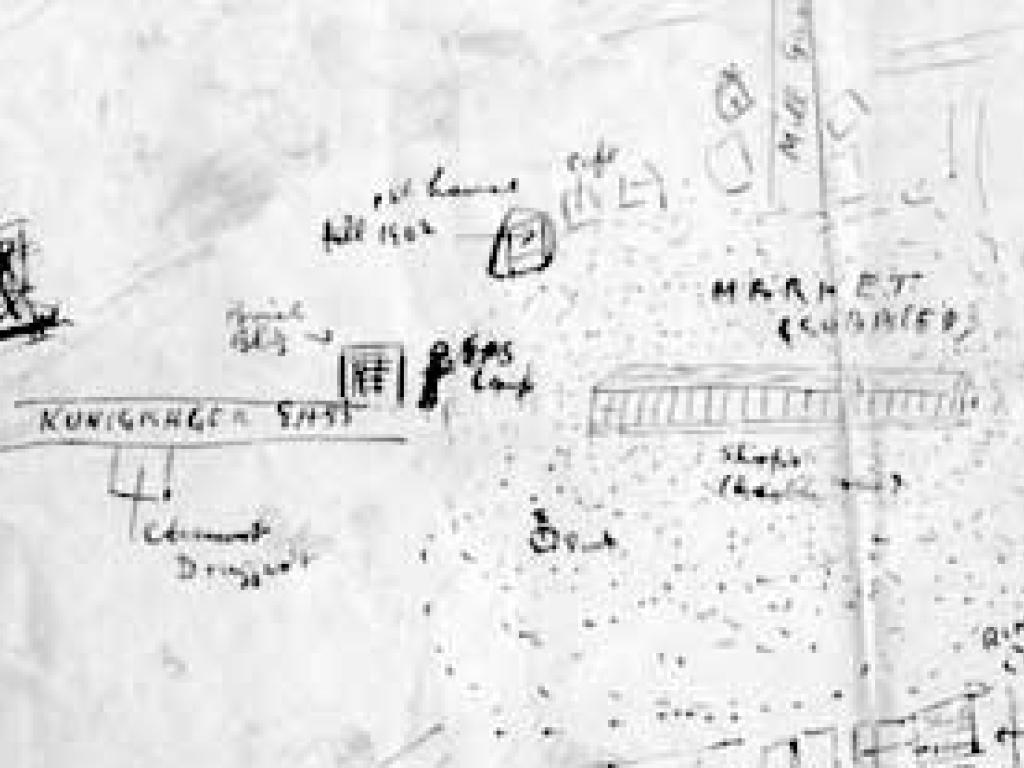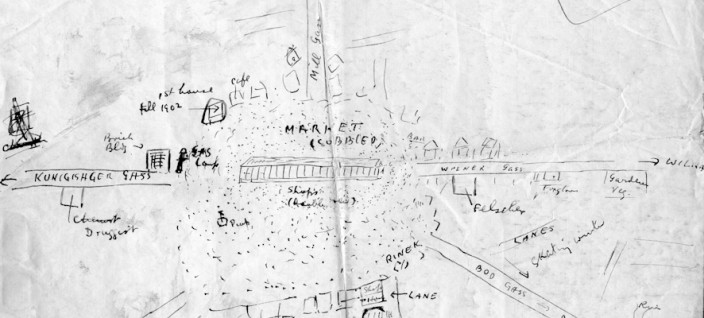Pale Jews Symposium: Southern African Jewish history in the 1880s – 1930s


Image from The Abe Mirvish Collection, courtesy of the Jewish Digital Archive Project.
Symposium on
Pale Jews:
Southern African Jewish history in the 1880s – 1930s
Friday 1 and Sunday 3 March 2013
Institute for Humanities in Africa (HUMA) seminar room, 4th floor, GSH building, Upper Campus, UCT
This symposium is intended as an opportunity to share recent research on aspects of Southern African Jewish history. The event is animated by an historiographical interest in locating this history within a wider nexus of global connections and disconnections – as revealed, inter alia, by the dynamics of international and regional migration, colonialism and capitalism, linked to more intimate stories of family, marriage and domesticity. We are also keen to discuss the methodological options and choices we face in pursuit of this research, along with their archival conditions and constraints – and to consider the epistemological implications thereof. This will create opportunities to reflect on different ways of writing Jewish history, in the context of the contested politics of such knowledge.
The historical linkages can be variously explored. The large majority of Jews who migrated to South Africa during this period came from Eastern Europe, and the Pale of Settlement in particular. We welcome papers that focus on these places and the terms and conditions under which Jews made their way to southern Africa; likewise, the history of their passage and its links to technologies, economies and politics of international travel and trade. On the southern African end, we are interested in the terms of Jewish inclusion – not least, as pale/whites – within the modernizing, racialising orders taking shape during this period and how this articulated with regional practices of statecraft, social engineering, economic activity and the conditions of citizenship, along with the modes of thought that informed and reflected the flux of these times. In line with recent literatures on ‘the Jewish question’ elsewhere in the world, we hope thereby to hold a lens to debates and anxieties about capitalist modernity, and how these were refracted by Jews – materially and ideologically, within local and transnational circuits of goods, ideas and people.
We welcome research-driven papers that share this historiographical interest.
The symposium will be relatively informal, with no pre-circulated written papers. Presenters will speak to their papers, and generous amounts of time will be allocated to their discussion.
PROGRAMME
Friday 1st March
8.30 – 8.45am
Opening remarks
——————————————————————————————–
8.45 – 10.15am
Shula Marks, The challenge of writing family history
Gwynne Schrire, Vermin-eating Jews and other observations on travelling to and living in South Africa: reflections on the Hebrew diary of Yehuda Leib Schrire 1892-1893
————————————————————————————————————
10.15 – 10.45 am TEA
————————————————————————————————————
10.45am – 12.15pm
Steven Robins, Strange routes: tracking two cases of Jewish immigration from Germany to South Africa in 1888 and 1936
Lorna Levy, Silence: the unmarked death of a smous near Kimberley in 1906
———————————————————————————————————–
12.15 – 1pm LUNCH
————————————————————————————————————
1 – 2.30pm
Veronica Belling, Recovering South African Jewish women’s lives during the migration years, c1880-1939
Sally Swartz, Migration and madness: Pale Jews in Cape Colony lunatic asylums, 1890-1910
————————————————————————————————————
2.30 – 3pm TEA
———————————————————————————————————–3 – 5.15pm
Claudia Braude, South African Lite-land: Ethical lessons, historiographical trends and contemporary significance of the local Litvish legacy
Romi Kaplan, Ethical Archiving – preserving the integrity of old Ideals against contemporary positions
Michal Singer, Fragments of Europe: exploring the archive of the Cape Town Holocaust Centre
Sunday 3rd March
8.45am – 10.30am
Deborah Posel, Revisiting the story of Jewish prosperity and how to write about it
Robert Gordon, Some specious speculations about adventure capitalism in southern Namibia
————————————————————————————————————
10.30 – 11am TEA
————————————————————————————————————
11am – 12.45pm
Richard Mendelsohn, The archives of the British post-Boer War compensation commission: an unexpected window on Jewish immigrant experience in South Africa at the turn of the 20th century.
Adam Mendelsohn, Pale sweaters: comparing the clothing trade as a vehicle for Jewish economic mobility in England, America and South Africa in the age of mass migration
————————————————————————————————————
12.45 – 1.30 pm LUNCH
————————————————————————————————————
1.30 – 3.15pm
Rebecca Hodes, ‘Free fight on the Parade': Socialism, brawn and resistance to the Greyshirts in 1930s South Africa
Paul Weinberg, Dear Edward – Family footprints
———————————————————————————————————
3.15– 3.45pm TEA
———————————————————————————————————
3.45 – 4.45pm
Milton Shain, Reflections on the ‘Jewish Question’ in South Africa during the 1930s
4.45 – 5.15pm Concluding reflections
For a more detailed programme pale-jews-symposium-programme-1.pdf
